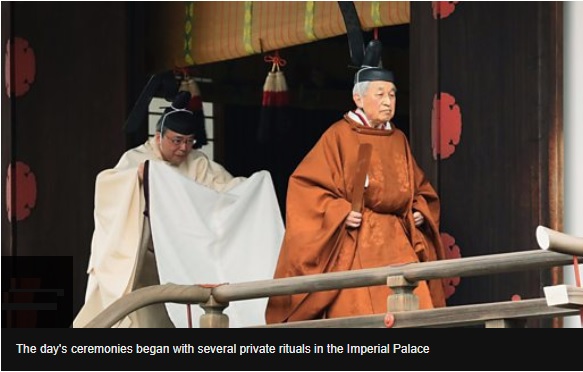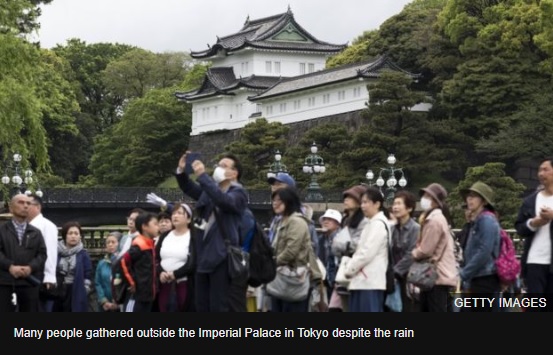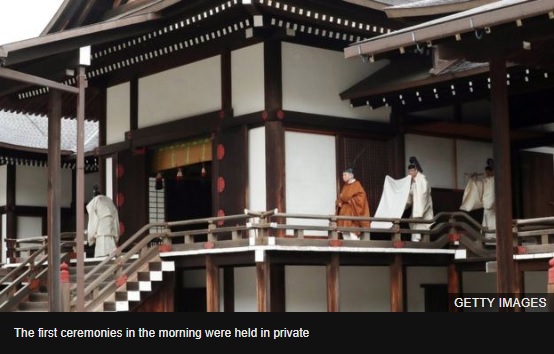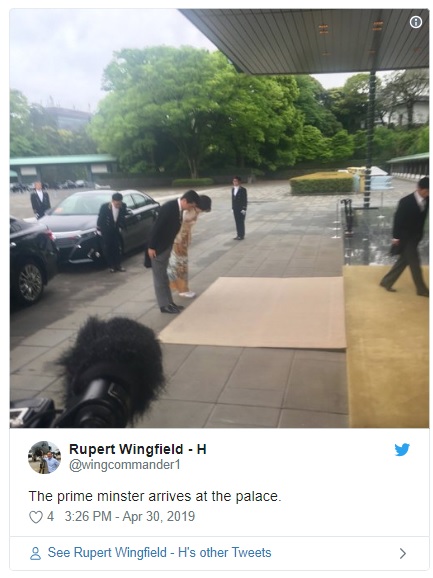
Final ceremonies are taking place at Tokyo's Imperial Palace to mark Emperor Akihito's historic abdication.
He is the first Japanese monarch to stand down in more than 200 years.
The 85-year-old was given permission to abdicate, after a three-decade reign, saying he felt unable to fulfil his role because of his age and declining health.
Crown Prince Naruhito will ascend the throne on Wednesday, beginning a new era for Japan.
The emperor in Japan holds no political power but serves as a national symbol.
Emperor Akihito's reign has been marked by his interactions with people suffering from disease and disaster, which have endeared him to many Japanese people.

In the first private ceremonies of the day, the emperor reported his abdication to the mythological ancestors of Japan's imperial family.
What will happen at the abdication ceremony?
The Taiirei-Seiden-nogi, or main Ceremony of the Abdication of His Majesty the Emperor, is taking place at the Matsu-no-Ma state room in the Imperial Palace.
It began at 17:00 local time (08:00 GMT) with Emperor Akihito and Empress Michiko entering the room and will last about 10 minutes. Over 330 attendants will also be present.
The ceremony will end with Akihito delivering his final address as emperor, though he will technically remain emperor until midnight.

Tuesday's events will be the first time anyone alive will get to watch a Japanese abdication ceremony.
On Wednesday morning, Crown Prince Naruhito will inherit the Imperial Treasures in his first ritual as emperor.

Why did the emperor decide to abdicate?
Akihito will be the first Japanese monarch to voluntarily relinquish the throne since 1817.
The 85-year-old said in a rare address in 2016 that he feared his age would make it hard for him to carry out his duties and strongly hinted that he wanted to stand down.
"When I consider that my fitness level is gradually declining, I am worried that it may become difficult for me to carry out my duties as the symbol of the State," he had said then.
Opinion polls showed that the vast majority of Japan sympathised with the emperor's desire to retire and a year later parliament enacted a law that made his abdication possible.

